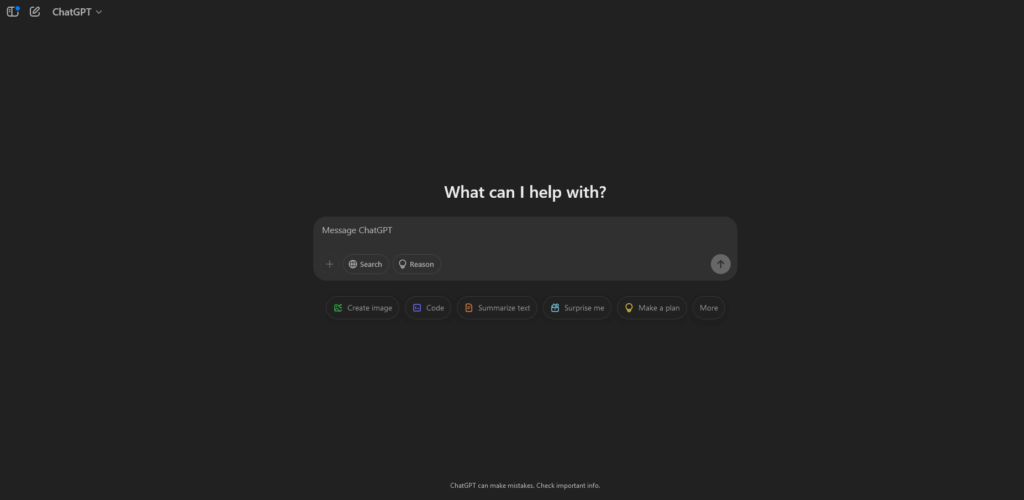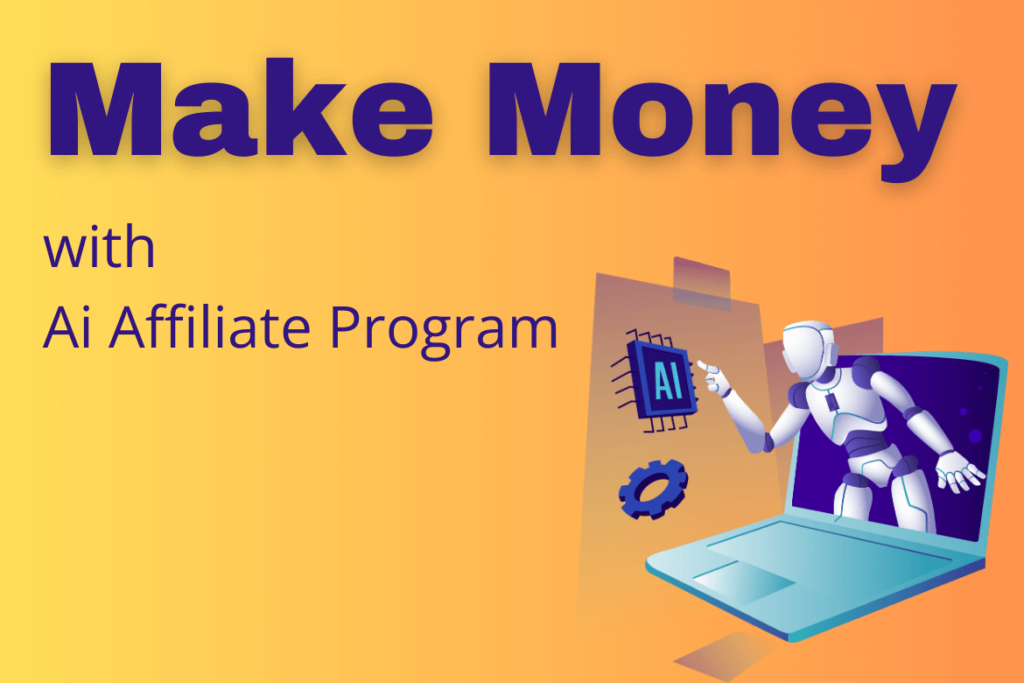With the rapid advancements in AI, choosing the best AI chatbot can be overwhelming. ChatGPT and DeepSeek are two of the most powerful AI-driven conversational models available today. But which one is better for your needs? In this detailed comparison, we’ll break down their features, capabilities, pros, and cons to help you make an informed decision.
ChatGPT, developed by OpenAI, is one of the most popular AI chatbots known for its versatility, accuracy, and ability to generate human-like text. On the other hand, DeepSeek is a relatively newer AI model that aims to compete with ChatGPT by offering improved accuracy and deep-learning capabilities.
👉 What is ChatGPT?

ChatGPT is an advanced AI chatbot created by OpenAI that can understand and generate text in a way that feels very similar to having a conversation with a human. It uses a language model called GPT (Generative Pre-trained Transformer), which has been trained on a massive amount of text from books, websites, and other sources. This training allows it to process questions, understand context, and provide useful and relevant answers.
ChatGPT can be used in many different ways. It helps people write content such as blog posts, emails, and social media updates. It can also assist with more complex tasks, like coding, where it can generate code or help debug programming errors. The AI is also great for learning—students use it to summarize articles, explain difficult topics, and assist with studying. In addition, professionals and businesses use ChatGPT for brainstorming ideas, generating marketing content, and even automating customer service tasks.
One of the key benefits of ChatGPT is its ability to have natural conversations. It can respond to questions, explain concepts, and even engage in casual chats, making it a helpful tool for anyone looking for quick answers or information. The more specific the question, the better ChatGPT can tailor its response to meet the user’s needs.
How Does ChatGPT Work?
ChatGPT is trained on vast amounts of text data from books, websites, and other sources to learn how humans communicate. It processes input, understands context, and generates relevant responses. The more specific your question or prompt, the better its reply.
Key Features of ChatGPT:
- Natural Language Understanding and Generation: ChatGPT excels at understanding and generating human-like text, making it ideal for conversations, content creation, and answering questions.
- Versatility: It can perform a variety of tasks, including writing essays, summarizing text, translating languages, generating code, and providing explanations on complex topics.
- Contextual Awareness: ChatGPT can maintain context over long conversations, allowing it to provide coherent and relevant responses based on previous interactions.
- Multi-Language Support: The model supports multiple languages, making it useful for global users and businesses operating in diverse linguistic environments.
- Customizability: Developers can fine-tune ChatGPT for specific applications, such as customer support, education, or entertainment, to better suit their needs.
- Real-Time Interaction: ChatGPT can engage in real-time conversations, making it suitable for chatbots, virtual assistants, and live customer support.
- Knowledge Integration: While it has a knowledge cutoff (e.g., up to October 2023 for GPT-4), ChatGPT can access and integrate a vast amount of information to provide accurate and insightful responses.
- User-Friendly Interface: It is designed to be easy to use, allowing both technical and non-technical users to interact with it effectively.
- Scalability: ChatGPT can handle a wide range of tasks, from simple Q&A to complex problem-solving, making it scalable for individual users and large enterprises alike.
- Ethical and Safe AI: OpenAI has implemented safety measures to reduce harmful or biased outputs, ensuring that ChatGPT adheres to ethical guidelines and promotes responsible AI use.
- API Integration: ChatGPT can be integrated into applications, websites, and services via APIs, enabling businesses to leverage its capabilities in their own platforms.
- Continuous Learning: While it doesn’t learn in real-time from user interactions, OpenAI periodically updates and improves the model based on feedback and new data.
Who Uses ChatGPT?
- Individuals for learning, content creation, and entertainment.
- Businesses for customer support and document generation.
- Developers for coding assistance and AI integration.
- Content creators for writing and brainstorming ideas.
- Educators and students for tutoring and research.
- Customer support teams for chatbots and instant responses.
- Marketers for ad copy and campaign strategies.
- Healthcare professionals for documentation and research.
- Researchers for summarizing papers and data analysis.
- Startups for scaling operations and automating tasks.
Pros and Cons of ChatGPT
Pros
Cons
👉 What is DeepSeek?

DeepSeek is a cutting-edge artificial intelligence (AI) platform designed to provide advanced solutions for data analysis, natural language processing, and decision-making. It leverages state-of-the-art machine learning algorithms to process and interpret large volumes of data, making it a powerful tool for businesses, researchers, and developers.
DeepSeek is also known for its adaptability. It can be customized to suit various industries, including healthcare, finance, retail, and more. For example, in healthcare, it can analyze medical records to assist in diagnosis, while in finance, it can predict market trends and assess risks. Its flexibility allows it to integrate seamlessly with existing systems, enhancing their capabilities without requiring significant changes.
Another standout aspect of DeepSeek is its focus on efficiency and scalability. It can handle massive datasets quickly, making it suitable for both small businesses and large enterprises. Additionally, its user-friendly interface ensures that even non-technical users can harness its power without extensive training.
DeepSeek also prioritizes security and privacy, ensuring that sensitive data is protected throughout the analysis process. This makes it a reliable choice for industries that handle confidential information.
Key Features of DeepSeek:
- Advanced Natural Language Processing (NLP): DeepSeek excels in understanding, interpreting, and generating human-like text. It can perform tasks like language translation, sentiment analysis, content creation, and chatbot interactions with high accuracy.
- Data Analysis and Insights: The platform can process and analyze large volumes of structured and unstructured data to uncover patterns, trends, and actionable insights. This helps businesses make data-driven decisions.
- Customizability: DeepSeek is highly adaptable and can be tailored to meet the specific needs of various industries, such as healthcare, finance, retail, and more. It integrates seamlessly with existing systems.
- Scalability: Designed to handle massive datasets, DeepSeek is suitable for both small businesses and large enterprises. It ensures efficient performance even as data volumes grow.
- User-Friendly Interface: The platform is designed to be intuitive, allowing non-technical users to leverage its capabilities without requiring extensive training.
- Real-Time Processing: DeepSeek can analyze and provide insights in real-time, making it ideal for applications like customer support, fraud detection, and market trend analysis.
- Security and Privacy: DeepSeek prioritizes data security, ensuring that sensitive information is protected through robust encryption and compliance with privacy regulations.
- Multi-Language Support: It supports multiple languages, making it a global solution for businesses operating in diverse linguistic environments.
- Automation Capabilities: DeepSeek automates repetitive tasks, such as report generation, data entry, and customer interactions, saving time and reducing human error.
- Predictive Analytics: Using machine learning, DeepSeek can predict future trends, behaviors, and outcomes, helping organizations plan and strategize effectively.
Who Uses DeepSeek?
- Businesses for data analysis and decision-making.
- Healthcare providers for diagnosis and research.
- Financial institutions for risk assessment and fraud detection.
- Retailers for customer insights and inventory management.
- Researchers for data analysis and NLP tasks.
- Developers for AI integration and automation.
- Customer support teams for chatbots and feedback analysis.
- Marketing agencies for consumer behavior analysis.
- Government for policy-making and public service optimization.
- Education institutions for personalized learning and research.
Pros and Cons of DeepSeek
Pros
Cons
👉 Cost and Pricing Plans: ChatGPT vs. DeepSeek
ChatGPT
ChatGPT offers a straightforward pricing structure. It has a free plan for basic use, which is great for casual users or small tasks. For more advanced features, there’s ChatGPT Plus, which costs around $20 per month. This plan provides faster responses, priority access during busy times, and access to the more advanced GPT-4 model.
It’s ideal for professionals, businesses, or anyone who needs reliable and enhanced performance. For large organizations, ChatGPT also offers an Enterprise plan with custom pricing, tailored to specific needs, including advanced security, scalability, and dedicated support.
ChatGPT is more affordable and accessible, especially for individuals, small businesses, or general-purpose tasks like content creation, coding, and customer support. DeepSeek, while more costly, is tailored for businesses with advanced needs, such as large-scale data analysis or industry-specific solutions.
DeepSeek
DeepSeek, on the other hand, typically uses custom pricing based on the user’s requirements. This means the cost depends on factors like the volume of data, specific features needed, and the industry it’s being used in. Because DeepSeek is designed for advanced data analysis and industry-specific applications, it tends to be more expensive than ChatGPT.
Some versions may offer a free trial or demo to let users test the platform before committing. DeepSeek is best suited for businesses and enterprises that need specialized tools for complex data processing and decision-making.
👉 User Experience and Interface: ChatGPT vs. DeepSeek
ChatGPT
ChatGPT is designed to be user-friendly and accessible to everyone, even those without technical expertise. Its interface is simple and intuitive, allowing users to type in questions or prompts and receive instant, human-like responses. The platform is highly interactive, making it easy for individuals, students, or professionals to use for tasks like writing, learning, or brainstorming.
ChatGPT also integrates seamlessly into apps and websites through APIs, making it convenient for developers and businesses. The focus is on simplicity and ease of use, making it a great choice for general-purpose tasks.
DeepSeek
DeepSeek, on the other hand, is more tailored for businesses and professionals who need advanced data analysis and industry-specific solutions. Its interface is designed to handle complex tasks, such as processing large datasets, generating insights, and automating workflows.
While it may require some technical knowledge for advanced customization, DeepSeek often provides user-friendly dashboards and tools to help non-technical users navigate its features. The platform is built for scalability and efficiency, making it ideal for enterprises but potentially overwhelming for casual users.
👉 Security and Ethical Considerations: ChatGPT vs. DeepSeek
ChatGPT
ChatGPT places a strong emphasis on user privacy and data security. OpenAI, the developer of ChatGPT, has implemented measures to protect user data, such as encryption and strict access controls. However, since ChatGPT is a conversational AI, there are concerns about the potential misuse of the tool, such as generating harmful content or spreading misinformation. OpenAI has introduced ethical guidelines and moderation systems to reduce these risks, but challenges remain in ensuring the tool is used responsibly. Additionally, ChatGPT’s knowledge cutoff means it may not always provide up-to-date or accurate information, which could lead to unintended consequences.
DeepSeek
DeepSeek is designed with a strong focus on security, especially for businesses handling sensitive data. It employs advanced encryption and compliance with privacy regulations to ensure data protection. Since DeepSeek is often used for critical tasks like healthcare diagnostics or financial analysis, it prioritizes accuracy and reliability. However, like any AI system, there are ethical concerns, such as potential biases in data analysis or over-reliance on automation. DeepSeek’s industry-specific applications also raise questions about accountability and transparency, especially in high-stakes environments.
Conclusion: Which One Should You Choose?
Both ChatGPT and DeepSeek have their strengths. If you need a versatile, widely integrated AI with superior NLP and content creation abilities, ChatGPT is the best choice. However, if you require a model focused on deep contextual learning, DeepSeek might be a viable alternative.



